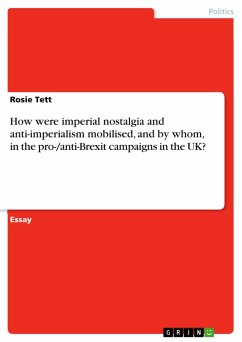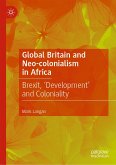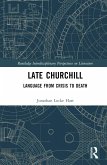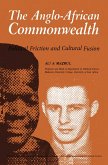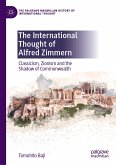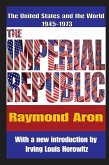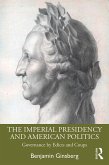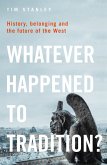Essay from the year 2022 in the subject Politics - Region: Western Europe, grade: 72, University of Portsmouth, course: International Development, language: English, abstract: The 2016 UK referendum on continued membership of the European Union (EU), which concluded in a victory for the Leave campaign, has been argued by many to have been less a debate on the pros and cons of membership, but rather a proxy for discussions about race and migration. Many believe that "imperial nostalgia" was mobilised and was a leading factor in the success of the Leave vote, with 52% of the population voting in its favour. It became widely theorised by academic commentators, with the argument that many Leave voters were partial to imperial patterns of thought, consciously or not, and that the terms on which the creation of the EU referendum took place are indicative of the UK struggling to place itself in the world post-Empire. However, it is thought that "imperial nostalgia" was oftentimes combined with and in lieu of "imperial amnesia", with individuals longing for an independent, self-sustaining, homogenous Britain, that never truly existed, and how this train of thought was used to campaigner and politician's advantage. This essay first explores how imperial nostalgia was mobilised by pro-Brexiters in the referendum and how they used colonial terms in their favour, but also how imperial nostalgia and anti-imperialism was mobilised by those in support of Remain.
Dieser Download kann aus rechtlichen Gründen nur mit Rechnungsadresse in A, B, BG, CY, CZ, D, DK, EW, E, FIN, F, GR, HR, H, IRL, I, LT, L, LR, M, NL, PL, P, R, S, SLO, SK ausgeliefert werden.

